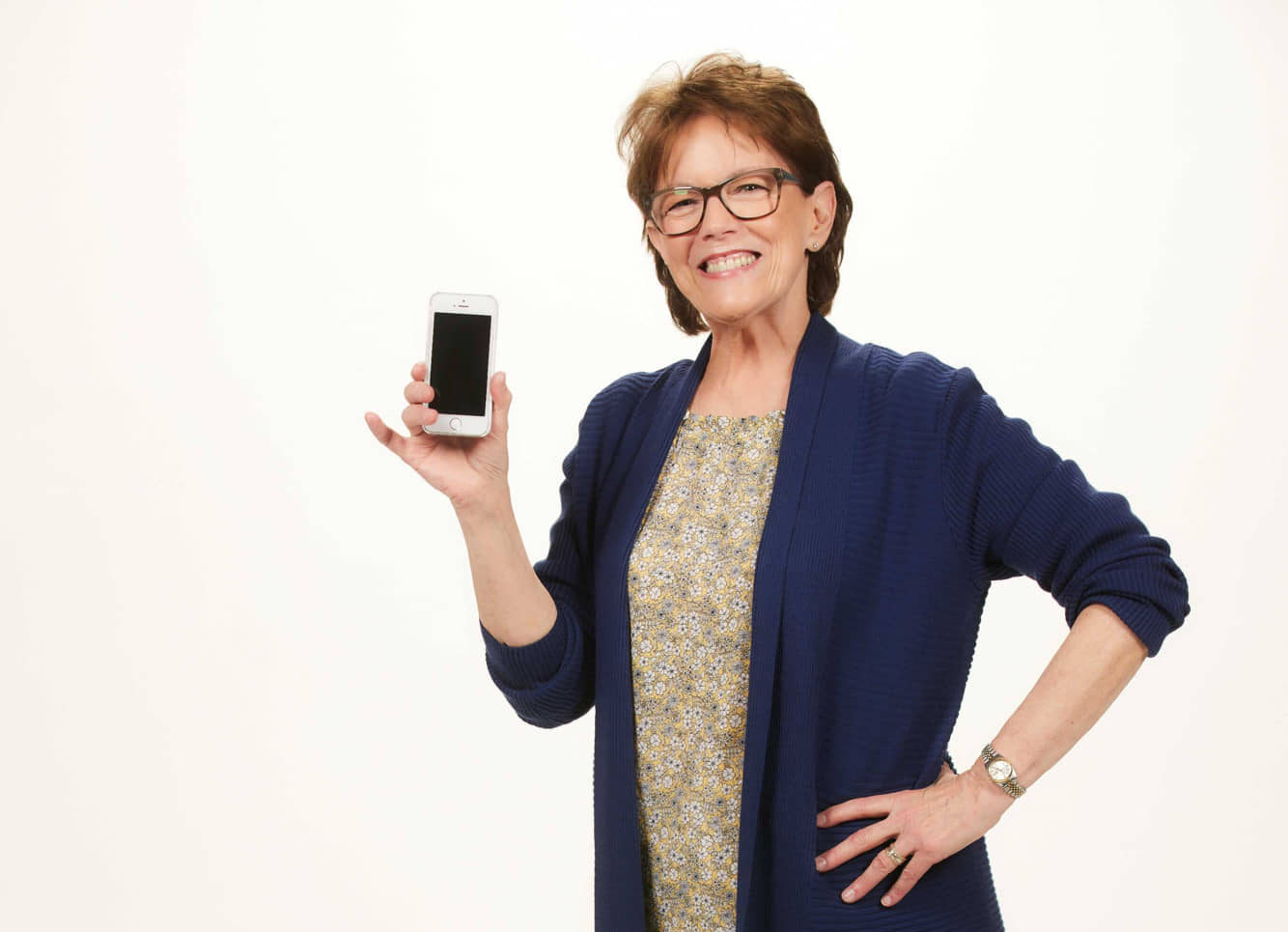Unveiling The Truth: How Much Did Susan Bennett Get Paid For Siri?
The question of how much did Susan Bennett get paid for Siri has lingered for years, captivating the curiosity of millions who interact with Apple's iconic voice assistant daily. It's a query that delves into the fascinating intersection of technology, intellectual property, and the often-unseen human talent behind our digital world.
While Siri has become a household name, the story of its original voice, Susan Bennett, and her compensation, is far more complex and surprising than many might imagine. This article will unravel the truth behind her payment, exploring the nuances of her agreement and the broader implications for voice actors in the digital age.
Table of Contents
- The Unseen Voice: Who is Susan Bennett?
- Susan Bennett: Personal Data & Biography
- The Genesis of a Digital Icon: Siri's Origins
- Unpacking the "Much": Understanding Voice Actor Compensation
- The Core Question: How Much Did Susan Bennett Get Paid for Siri?
- The Nuance of the Deal: Paid for Recordings, Not for Siri's Identity
- The Acknowledgment: Siri's Own Words
- A Tale of Two Voices: Compensation for Subsequent Siri Voices
- The Impact of Ubiquity: Millions of iPhones, One Uncompensated Voice
- Legal and Ethical Considerations in Voice AI
- The Legacy Beyond the Paycheck: Susan Bennett's Enduring Impact
- Conclusion
The Unseen Voice: Who is Susan Bennett?
Before diving into the intricate details of her compensation, it's essential to understand who Susan Bennett is. Often referred to as "the best known unknown," Susan Bennett is an American voice actress and a former backup singer for legendary artists like Roy Orbison and Burt Bacharach. Born Susan Alice Cameron on July 31, 1949, she has built a prolific career lending her voice to countless commercials, singing jingles, and providing narration for various projects. Her iconic iPhone oeuvre, as it's been called, is just one facet of her extensive portfolio.
Bennett's journey to becoming the original voice of Siri was, in her own words, accidental. She didn't audition for "Siri" specifically. Instead, she was hired by a company called GM Voices to record thousands of phrases and sentences for a client, without knowing the ultimate application of these recordings. These sessions, conducted over several weeks in 2005, involved speaking in a very specific, neutral tone, designed to be versatile enough for various interactive voice response (IVR) systems. Little did she know, these seemingly mundane recordings would eventually become the auditory foundation for one of the most revolutionary technological advancements of the 21st century.
For years, her voice was the ubiquitous confidante hiding in millions of phones, yet her identity remained a mystery to the public. It wasn't until 2013, over three years after Siri's debut on the iPhone 4S in 2011, that Bennett publicly came forward and revealed herself as the original female voice. Her revelation sparked widespread fascination, turning a familiar sound into a recognizable face.
Susan Bennett: Personal Data & Biography
To provide a clearer picture of the individual behind the voice, here is a brief overview of Susan Bennett's personal and professional details:
| Attribute | Detail |
|---|---|
| Full Name | Susan Alice Bennett (née Cameron) |
| Born | July 31, 1949 |
| Birthplace | Clinton, Oneida County, New York, USA |
| Age (as of 2019 data) | 70 years (born 1949) |
| Profession | Voice Actress, Singer |
| Known For | Original female voice of Apple's Siri (2011-2013) |
| Other Work | Commercials, IVR systems, singing, backup vocals for artists like Roy Orbison and Burt Bacharach. |
Susan Bennett's career spans decades, showcasing her versatility and the extensive reach of her voice even before Siri. Her story is a testament to the often-anonymous nature of voice work and the surprising ways in which a professional's recordings can take on a life of their own.
The Genesis of a Digital Icon: Siri's Origins
To fully grasp the context of Susan Bennett's payment, it's crucial to understand Siri's journey. Siri began not as an Apple project, but as a spin-off from a joint project by SRI International and DARPA. It was initially released as an app for iOS in February 2010. Apple then acquired Siri Inc. in April 2010, integrating the technology directly into its operating system. When the iPhone 4S launched in October 2011, Siri was introduced as a groundbreaking personal assistant, capable of understanding natural language and performing a wide array of tasks.
The voice that greeted millions of iPhone users upon Siri's debut was Susan Bennett's. Her recordings, made years prior for a different purpose, were repurposed and integrated into Apple's revolutionary new feature. This timeline is critical: her voice work predates Apple's acquisition of Siri and its subsequent integration into iOS. This separation of time and intent is central to the discussion of how much did Susan Bennett get paid for Siri.
Unpacking the "Much": Understanding Voice Actor Compensation
The word "much" implies a great quantity, amount, or degree. When we ask "how much did Susan Bennett get paid for Siri," we're naturally curious about whether the compensation matched the immense impact and widespread use of her voice. In the world of voice acting, compensation models can vary significantly. Typically, voice actors are paid per session, per project, or sometimes receive residuals based on the usage and reach of their recordings. For a voice that would be heard by hundreds of millions globally, one might expect a truly significant, even historic, payment.
However, the concept of "much" becomes nuanced here. While her voice achieved a level of ubiquity that few voice actors ever experience, the financial compensation structure for her specific recordings was not tied to this future, unforeseen success. Understanding this distinction is key to answering the central question. The "much" in her payment was for the initial recording sessions, not for the subsequent, massive deployment as Siri.
The Core Question: How Much Did Susan Bennett Get Paid for Siri?
This is the question that has captivated public interest, and the answer is often surprising to those who assume a direct, lucrative deal with Apple. The definitive answer to how much did Susan Bennett get paid for Siri is that she was never directly compensated by Apple for her voice being used as the virtual assistant. She was only paid for the original recordings she made for GM Voices.
To clarify: Susan Bennett was paid by GM Voices for the hours she spent in the recording booth in 2005. These were standard contractual payments for voiceover work. At the time, she was simply recording phrases for a client who needed a voice for various telecommunications projects and interactive voice response (IVR) systems. There was no mention of Apple, no specific project named "Siri," and certainly no indication that her voice would become the auditory face of a global tech phenomenon.
Therefore, while she did receive payment for her work, it was a standard session fee for recordings that were, in her understanding, generic. She did not receive any additional compensation, royalties, or residuals from Apple for the use of her voice as Siri, despite its widespread adoption across hundreds of millions of devices.
The Nuance of the Deal: Paid for Recordings, Not for Siri's Identity
The crucial distinction lies in the nature of the contract. Voice actors often sign contracts that grant broad usage rights for their recordings. In Bennett's case, the recordings she made for GM Voices were then licensed to other companies. One of these companies was Nuance Communications, which developed the text-to-speech technology that Apple later licensed for Siri. When Apple acquired Siri Inc. and integrated its technology, Bennett's voice, already part of the Nuance database, was selected.
Susan Bennett herself discovered her voice was Siri's when a friend contacted her after the iPhone 4S launch in 2011. She had no prior knowledge, no heads-up from Apple, and no direct contract with the tech giant regarding Siri. As she told CNN, she found out she was the voice of Apple's digital assistant simply by hearing it. This highlights a significant loophole or oversight in the early days of AI voice integration, where the original human talent could be far removed from the final, massive application of their work.
The Acknowledgment: Siri's Own Words
Perhaps one of the most poignant aspects of Susan Bennett's story is the limited acknowledgment she has received from Apple. If you ask Siri, "Who is Susan Bennett?" the digital assistant will respond, "She was the original voice of Siri up until 2011." This brief, factual statement is, according to Bennett, "the only acknowledgment I’ve ever gotten from the company."
This single line, delivered in her own voice (or a synthesized version of it), serves as a curious, almost ironic, form of recognition. It confirms her role but offers no further detail about the human behind the machine, nor does it hint at the complex compensation story. For a company known for its meticulous control over its brand and products, this minimal acknowledgment speaks volumes about the detached relationship between Apple and its original voice talent for Siri.
A Tale of Two Voices: Compensation for Subsequent Siri Voices
Interestingly, the situation regarding compensation for Siri's voice talent evolved after Susan Bennett's initial recordings. Bennett herself has stated that "the talent that came after her did get paid for being used as Siri." This indicates a shift in how Apple handled its voice talent for subsequent versions or regional variations of Siri. As Apple expanded Siri's capabilities and introduced new voices (and even new languages), it likely entered into direct agreements with voice actors, compensating them specifically for their role as the voice of Siri.
This contrast underscores the unique position Susan Bennett found herself in. Her recordings were made before Siri was even conceived as an Apple product, under a broad licensing agreement. Later voice actors, however, would have been contracted directly for a known, high-profile role. This highlights the rapid changes in the tech industry and the increasing awareness of intellectual property rights for voice talent in the burgeoning field of AI and virtual assistants.
The Impact of Ubiquity: Millions of iPhones, One Uncompensated Voice
The sheer scale of Siri's reach makes Susan Bennett's compensation story even more remarkable. Since its debut in 2011, Siri has been integrated into hundreds of millions of iPhones globally. There are over 700 million iPhones in the world, and each one came equipped with Siri. Her voice, therefore, has been heard billions of times, guiding users, answering questions, and performing tasks for a massive, worldwide audience. She is, in essence, the voice that millions have in the palm of their hand every day.
This ubiquity, however, did not translate into a corresponding financial reward from Apple for Bennett. While her voice became synonymous with innovation and convenience, the original payment she received was for a series of standard recording sessions, not for the monumental impact her voice would ultimately have. This situation raises important questions about the value of voice in the digital age and how much compensation is truly equitable when a recording achieves unforeseen global prominence.
Legal and Ethical Considerations in Voice AI
Susan Bennett's experience with Siri brings to light significant legal and ethical considerations surrounding voice talent in the age of artificial intelligence. Her case serves as a powerful example of how existing contracts and intellectual property laws, designed for traditional media, can be stretched or become ambiguous when applied to rapidly evolving technologies like AI voice assistants.
Key issues include:
- Scope of Use: Contracts need to clearly define the specific uses and platforms for which recordings are intended. Broad "all rights" clauses can inadvertently lead to situations like Bennett's.
- Future Technologies: How do contracts account for technologies that don't yet exist? Should voice actors receive additional compensation if their voice is used in groundbreaking new ways?
- Fair Compensation: What constitutes fair compensation when a voice becomes integral to a product used by hundreds of millions, generating billions in revenue?
- Attribution and Acknowledgment: Beyond financial compensation, is there an ethical obligation for companies to publicly acknowledge the human talent behind their AI voices?
As AI voices become more sophisticated and indistinguishable from human speech, these questions will only grow in importance. The industry is moving towards more explicit agreements for AI voice synthesis, but Bennett's case highlights the historical complexities that arose when the technology outpaced the contractual frameworks.
The Legacy Beyond the Paycheck: Susan Bennett's Enduring Impact
Despite the lack of direct compensation from Apple for her role as Siri, Susan Bennett has embraced her unique legacy. She has spoken extensively about her experience, providing valuable insight into the world of voice acting and the unexpected turns a career can take. She has continued her work as a voice actress, performer, and speaker, leveraging her "Siri Queen" status to educate and entertain audiences.
Her story has also played a crucial role in raising awareness about the rights and fair compensation of voice actors in the digital age. It serves as a cautionary tale and a call for clearer, more comprehensive contracts in an industry increasingly reliant on human voices for AI and virtual assistants. While the answer to how much did Susan Bennett get paid for Siri from Apple is "nothing directly," her impact extends far beyond a paycheck, shaping discussions about intellectual property and the human element in technology.
Conclusion
The question of how much did Susan Bennett get paid for Siri is more complex than a simple dollar figure. The truth is, while she was compensated for the original recording sessions by a third-party company, GM Voices, she never received direct payment or royalties from Apple for her voice's iconic role as the original Siri. Her recordings were made years before Apple acquired Siri, and their subsequent use was a surprising, accidental turn of events for Bennett herself.
This unique situation highlights the evolving landscape of intellectual property and compensation in the fast-paced world of technology. Susan Bennett's story is a fascinating blend of anonymity, accidental fame, and a groundbreaking contribution to digital interaction that, for her, came without the direct financial reward one might expect from such a globally recognized voice. Her legacy, however, is undeniable, having shaped the way millions interact with their devices every day.
What are your thoughts on Susan Bennett's situation? Do you think companies have an ethical obligation to compensate original voice talent more directly when their work achieves such widespread, unforeseen success? Share your comments below, and explore our other articles on the fascinating world of voice technology and digital innovation.

Susan Bennett, la voz de Siri, se asocia con la empresa de

Voice Of Siri

Siri Speaks! Actor Susan Bennett Discusses Her Most Famous Role